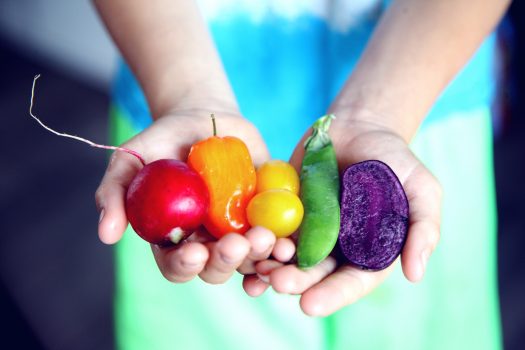Storing Food without Single-Use Plastic
During my shift away from plastic storage bags, I realized that I also needed to find ways to store food without single-use plastic. I have several reusable plastic containers that I’ve had for some time and these are still functional, so I choose to continue to use them until they are ready to be replaced—with glass containers and silicone lids. I use these for most foods that I would have kept wrapped in the grocery plastic bags or zip-lock bags.
I do use glass jars and containers for leftovers and bulk food purchases. Several fruits and vegetables do quite well without that plastic bag. Oranges, apples, and lemons keep well in the crisper drawer. Potatoes, uncut onions, shallots, and winter squash can be kept without wrapping in the pantry or cupboard. The challenge is those foods that wilt soon after purchase if they’re not wrapped.
Liz Hardy shared her solution for lettuce and spinach: wash the leaves and pile them on a clean dishtowel. Roll up the dishtowel with the leaves inside and get it wet, not dripping wet but really damp. She does the same thing with celery and other produce that would otherwise dry out in the crisper drawer. The towel keeps the produce moist, but also lets in adequate air. She has been doing this with lettuce for many years and has found that it lasts longer than when stored in plastic bags. If you already have a lettuce spinner, washing, shredding, and spinning the lettuce dry, then storing it in the spinner, is also a good option.
Try placing carrots and celery in a reusable plastic container; this keeps them fresh and crispy for some time. If they do lose their crispness, try slicing a small sliver off the root end and place the vegetable, root end down, in a jar of cold water. It usually takes no more than 30 minutes to return the crispness to the vegetable. Many of us don’t use an entire onion, cabbage, cucumber, or squash at once; placing these in a reusable glass or plastic container is an alternative to those flimsy plastic bags.
You may be thinking these efforts surely yield small results, but the average family brings home about 1,500 produce bags per year. It does add up!
We would love to hear your challenges, discoveries and solutions to reduce your reliance on single-use plastic.
- Written by LuAnn Staul
Questions to Consider
- What motivates you to consider ways to reduce single-use plastics in your life?
- What has been the most difficult part of implementing your solutions?
- What resources have you discovered that have helped you make these lifestyle changes?
- What advice do you have for someone who is just beginning this journey?
- Are you concerned that your efforts will not make a difference with this enormous problem?
- Have you contacted retail stores and/or manufacturers to share your concern about plastic pollution?
- Share your thoughts in the comments so we can all learn from you 🙂
(Questions by Carol Harker with the Community Carbon Team at St. Andrew Lutheran Church)
To sign up to receive these blog post directly to your email account, click here or on the link in the upper right sidebar of any page at ecofaithrecovery.org.
Please feel free to share this post with others and use the field below to post your thoughts on this topic. Thanks!

